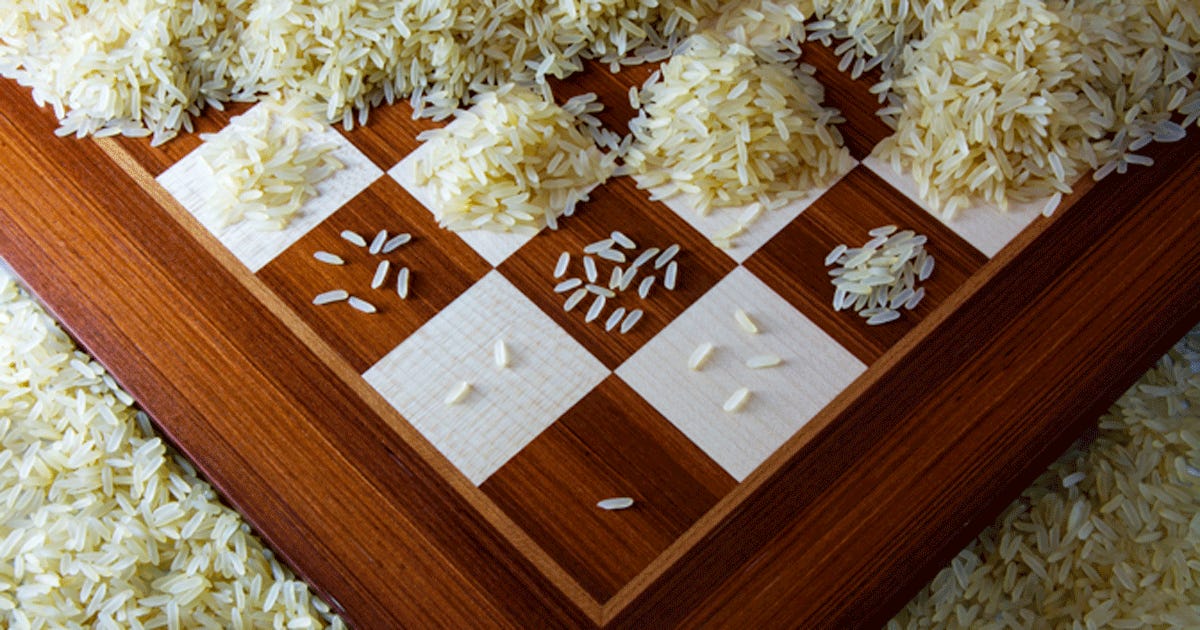Moravec’s Paradox for Ag Robotics
I.
The rice and the chessboard problem is a well known fable about exponential growth.
What repeated consistent digital doubling means, exactly, is best demonstrated through a story about an emperor and a chessboard. As legend has it, when chess was invented in sixth century India, the inventor was given an audience with the emperor. When asked to name his prize, the inventor asked for a single grain of rice to be placed on the first square of the chessboard, two to be placed on the second, four on the third, and so on, with the quantity of rice doubling every square. What most people, including the emperor, fail to realize is that if this pattern continues, by the final square the emperor would owe the inventor eighteen quintillion grains of rice, more rice than has been produced in the history of the world.
Image source: https://michiganfuture.org/2017/01/chessboards-and-rice/
Computing has had its own version of exponential growth, also known as Moore’s…
Keep reading with a 7-day free trial
Subscribe to Software is Feeding the World to keep reading this post and get 7 days of free access to the full post archives.





